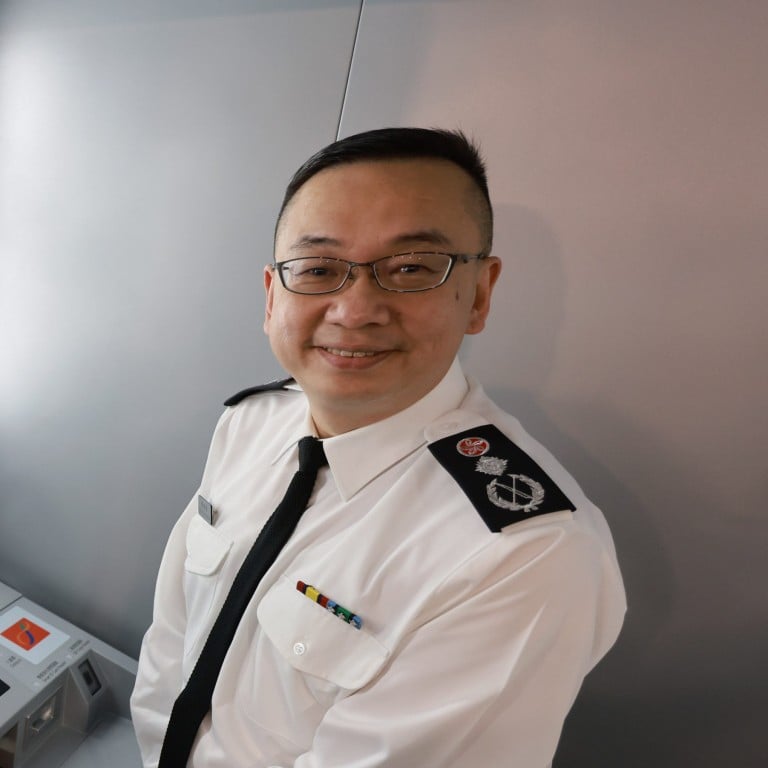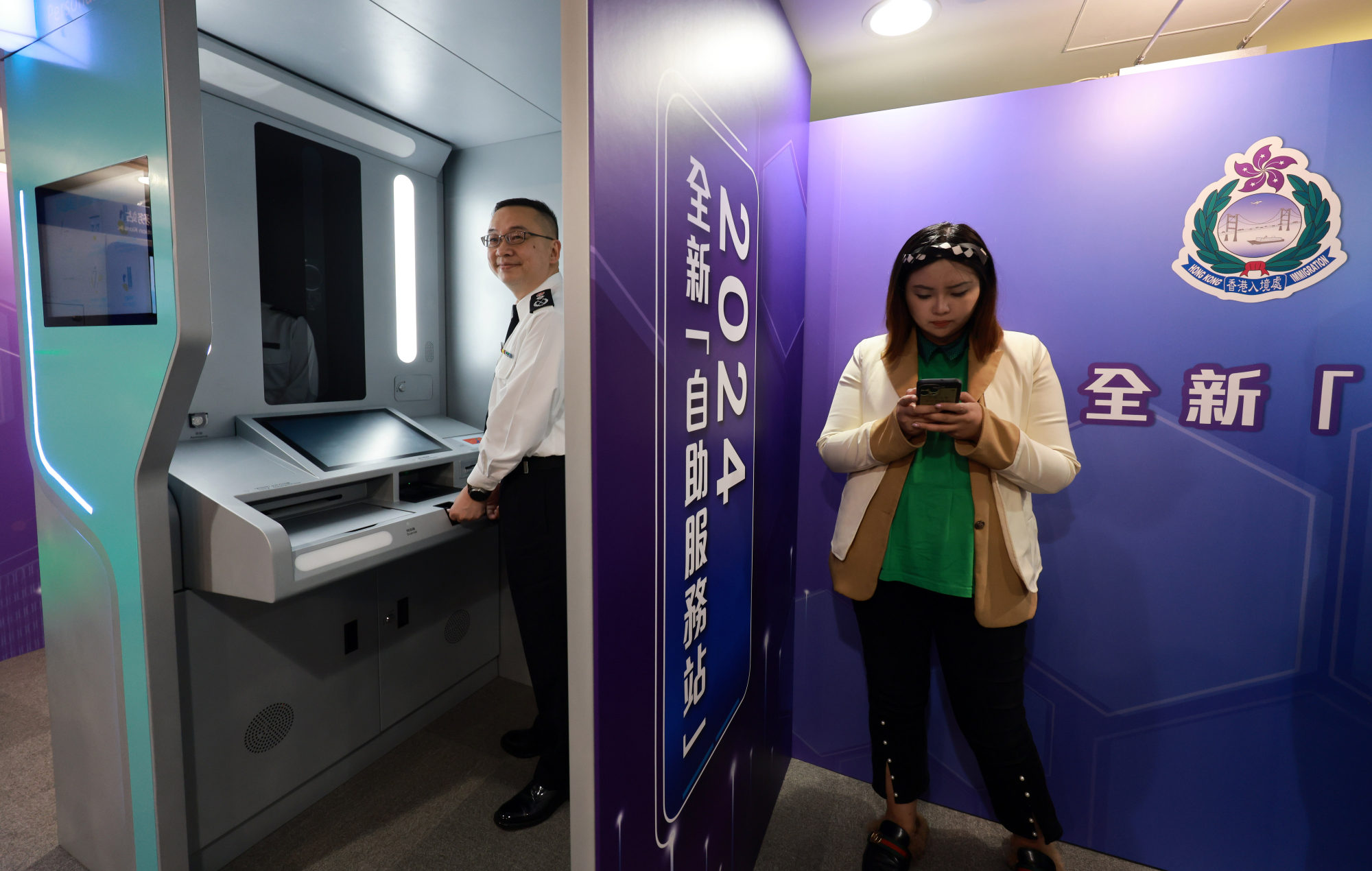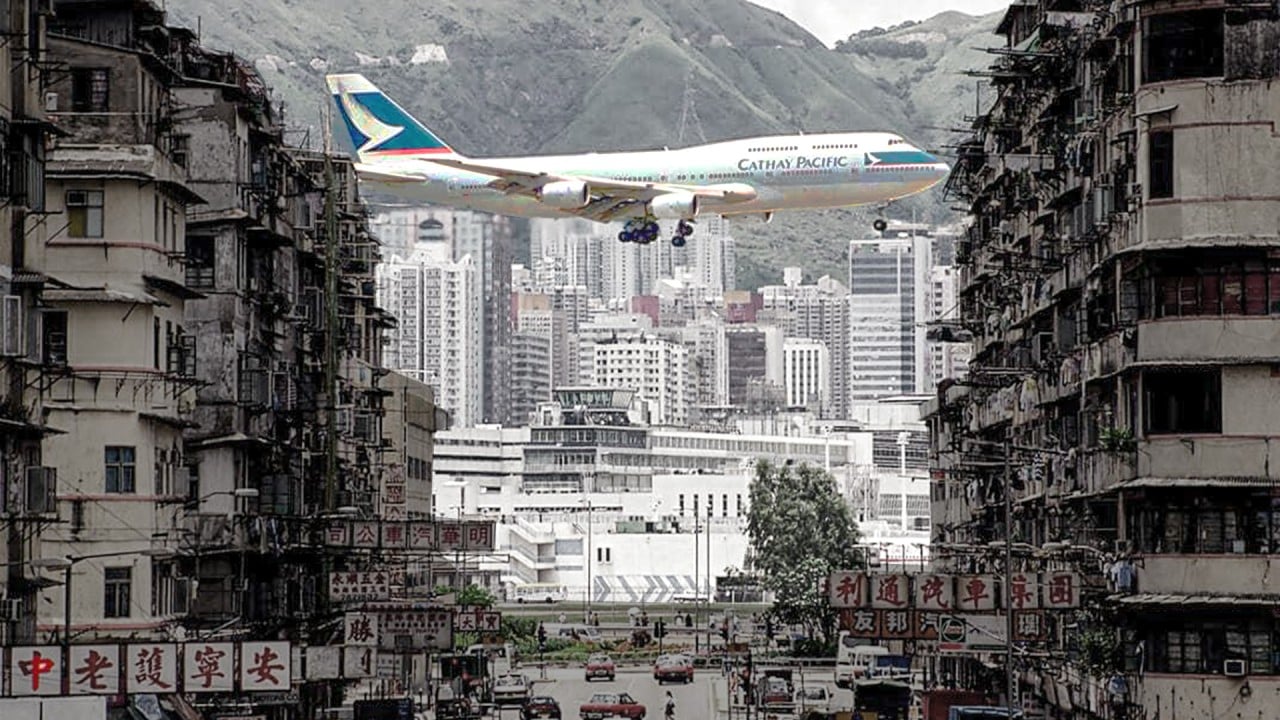
National security risk test for all Hong Kong visa applicants introduced by Immigration Department
- Director of Immigration Benson Kwok reveals department will evaluate background and past statements of visa applicants to determine whether they pose a risk
- Asked if foreign journalists, academics and lawyers will be barred, Kwok says ‘it’s not a blanket ban’
Hong Kong immigration authorities have introduced a national security risk test for all visa applicants to prevent people who pose a threat from entering the city, but they insist it will not target foreign journalists and academics.
Director of Immigration Benson Kwok Joon-fung revealed on Thursday that his department would evaluate the background and past statements of visa applicants to determine whether they posed a risk to national security.
“It’s not a blanket ban, but we will handle each visa application in accordance with the laws and immigration policies regardless of their occupation or particular fields of work,” Kwok said, when asked if all foreign journalists, academics and lawyers would be barred under the test.
The disclosure follows high-profile visa incidents in recent months. Academic Rowena He Xiaoqing, who researches the Tiananmen crackdown, had a work visa extension denied without explanation in October, while Japanese freelance journalist Yoshiaki Ogawa was turned away at the city’s airport in June.
New Hong Kong immigration head vows care over gatherings after predecessor scandals
According to the Immigration Department, 23,171 visitors were refused entry to Hong Kong last year, equivalent to less than 0.07 per cent of the 34 million arrivals.
“We can see that the proportion of visitors refused entry last year was even lower than in 2019 before the pandemic,” said Wallace Ching Wo-mok, deputy director for immigration control, visas and documents.
“One of the Immigration Department’s tasks is to prevent any unwelcome person or people posing threats to national security from entering Hong Kong.”
Immigration officers denied entry to 57,583 people out of 56 million visitors in 2019, or around 0.1 per cent of total visits.
Reviewing the department’s work over the past year, Kwok said travel into and out of the city had recovered to 70 per cent of 2019 pre-pandemic figures.
Hong Kong’s border checkpoints logged a combined 212 million departures and entries last year.
Among the visitors, 26 million were from mainland China and the other 7.2 million from overseas.
The department said more Hongkongers had also been signing up for its speedier self-service border-crossing option, the contactless e-channel. It said nearly 45 per cent of e-channel users took up its face recognition version last year.
More than 220,000 applications were received last year under various initiatives to attract both overseas and mainland professionals to the city, including 62,873 for the Top Talent Pass Scheme introduced in December 2022.
Hong Kong scheme to lure capital, talent could reel in ‘HK$120 billion annually’
The top talent scheme, designed for those who earned no less than HK$2.5 million (US$431,000) annually or were graduates of one of the world’s top 100 universities, had 49,737 successful main applicants admitted last year.
Kwok revealed that around 90,000 people had arrived in the city under the various schemes, The department last month received around 4,800 applications for the Top Talent Pass Scheme, with more than 4,700 approved.
But he said some applicants in the top talent scheme had been rejected because they failed to provide relevant documents or did not fulfil the requirements.
“I would also like to remind everyone that some suggestions from [immigration] agents might not be feasible,” Kwok warned.

“You need to choose carefully, and we don’t really encourage people to apply through agents as our application method is rather direct.”
Ching, the deputy director, said that for the Quality Migrant Admission Scheme, which aims to attract highly skilled people, more than 80,000 applications were submitted between January last year and the end of last month, with about 13,000 approved so far.
He said tens of thousands of applications were still being processed, noting the scheme’s success rate stood at around 90 per cent and that he was in discussions with the Labour and Welfare Department to hasten the process.
But the department has not finalised the details for a court-mandated overhaul to its policy over gender changes on Hong Kong identity cards.
Hong Kong opens new office for talent drive aimed at luring high-skilled workers
Transgender men Q and Henry Tse’s success in the Court of Final Appeal against the commissioner of registration’s refusal to review their gender status on their ID cards last February meant the Immigration Department had to review its handling on such requests.
“We aim at complying with the court judgment in a reasonable time, but it is a very complicated issue because it may affect the policies of other bureaus and departments,” Kwok said.
With the department moving to new headquarters in Tseung Kwan O in June, Kwok also revealed that a new self-service kiosk would be rolled out to cover both passports and identity card applications.
Residents can now book appointments for ID card issuance from June at the new headquarters, as a temporary office for handling such applications in Kwun Tong will close shortly before the new site goes into service.


